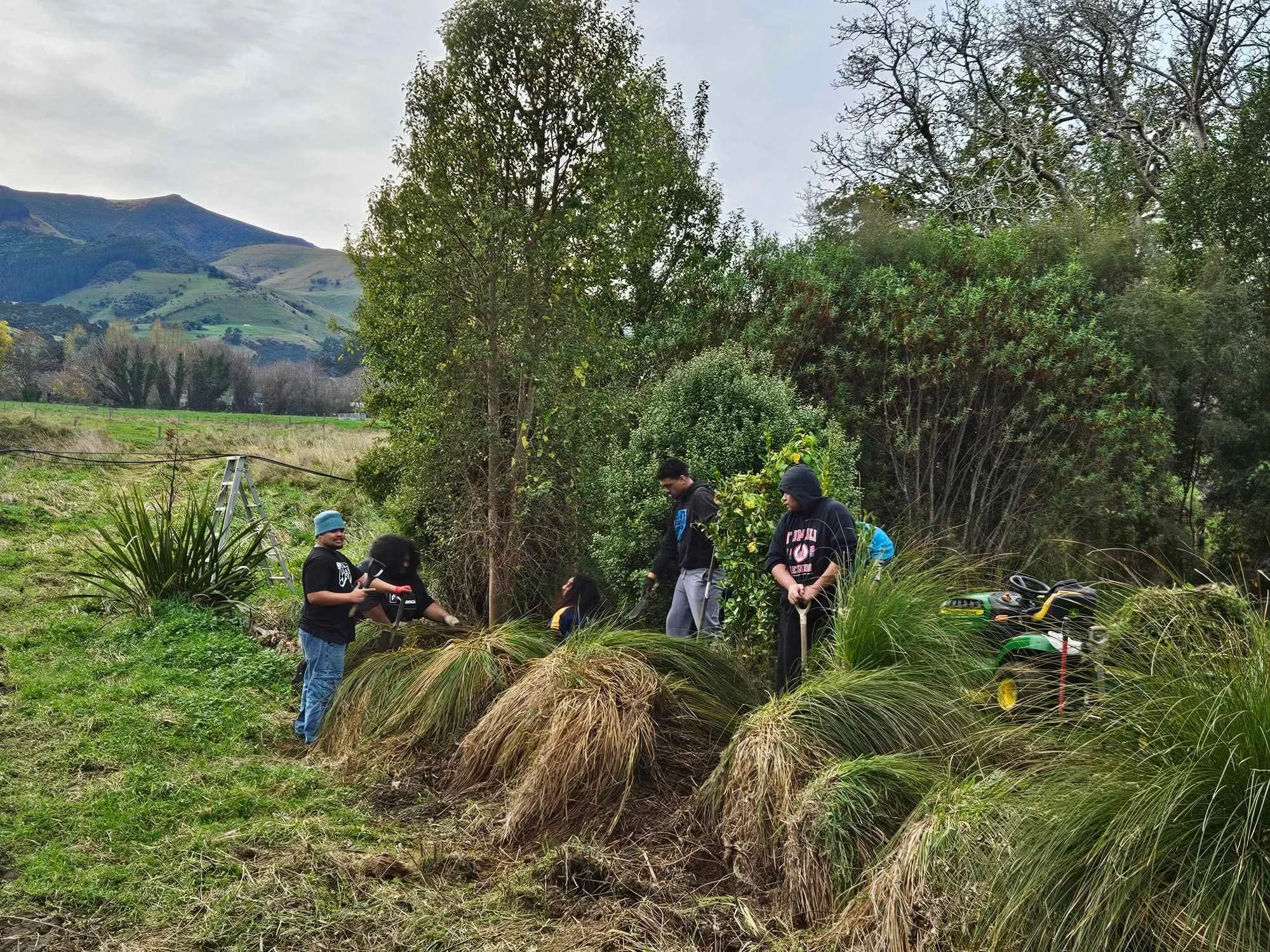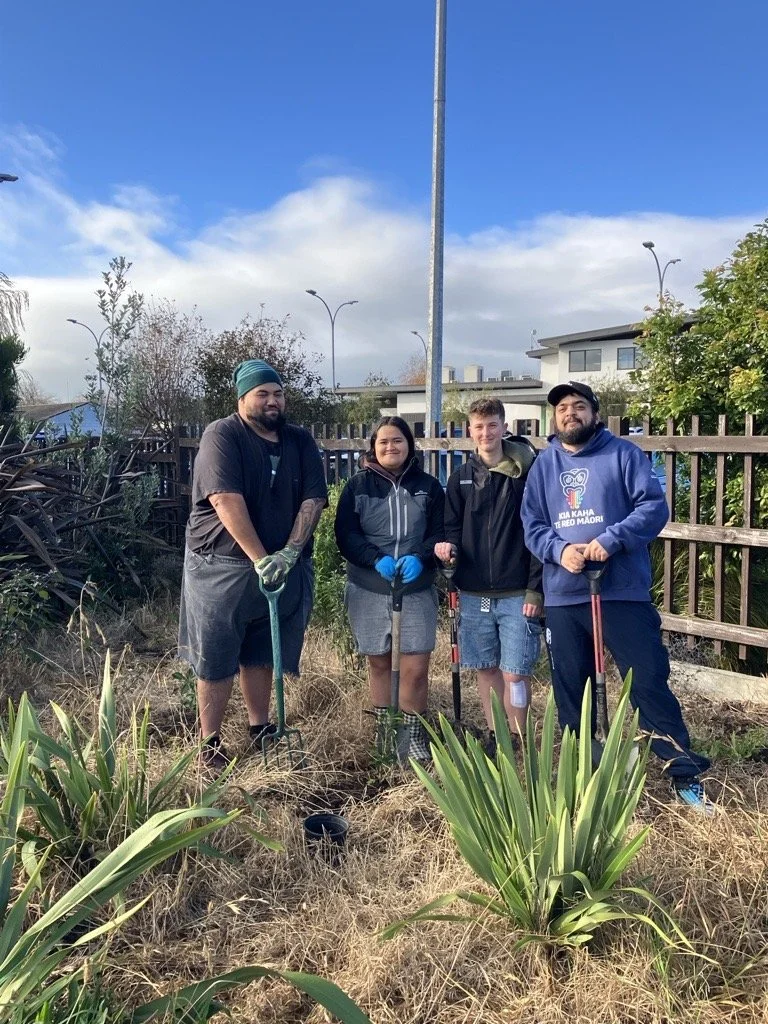The ARO story
Praxis was challenged that our organisation could do better in caring for the environment - not just in preparing youth workers for working in a changing climate, but in the organisation’s real impacts on the environment.
Aro is the moko of Lloyd Martin (Founder of Praxis).
Aro inspired our ARO project. For us, she personifies the connection and responsibility we feel towards the next generation. Our young people will inherit a world with significant environmental challenges that they have contributed very little towards.
The ARO project believes that the act of mitigating problems like climate change should resource and empower the communities and people who will be at the frontline of this crisis.
Aro Day
Each year at Praxis our team and students set aside a day for talanoa, learning and mahi on the land. There are many creative responses to the environmental crisis, and the range of events at our ARO days across the country reflected this.
Christchurch
-
Aro Day took us out to Little River, where we spent the day cleaning the awa and clearing rubbish left behind by the recent floods. It was a joy to get our hands dirty, reconnect with the whenua, and work together as a team.
The local op shop welcomed us with warm scones and coffee before we headed back to the mahi. With music playing in the background and plenty of laughter shared, the mahi felt light and full of life.
We were joined by young people from Aranui and Rowley, whose energy and aroha made the day even more special. A big thank you to everyone who came along to help care for our environment!
Whanganui
-
Our Whanganui based cluster had a great ARO day this year over in Te Papaioea linking up initially through the Environmental Network Manawatu to have a day planting at Pitt Park, a disused clay quarry which had become a rubbish dump, now being transformed into a beautiful shared recreation park to be shared by the community.
Our students were inspired by the mainly older group of volunteers as they chatted, worked side by side and shared a cuppa in the middle of the morning mahi.
In the afternoon we headed to the movies to watch environmentalist David Attenbour’s Ocean movie released on his 90thbirthday, showing amazing footage of the reality of our current fishing industry practices on our moana. The move brought to life both horrific challenge but also strong hope to heal our planet that can come by adjusting the way we fish and by listening to indigenous leadership as they remind us how best to care for our oceans.
Wellington
-
The Wellington Praxis team began Aro Day with a beach clean-up at Titahi Bay. The bay holds significant historical and cultural value, from early Māori settlement and the stories of Kupe’s discovery, to the establishment of Ngāti Ira fishing villages and pā sites at Komanga Point and Te Pā o Kapo. Today, Titahi Bay remains a well-loved part of Porirua, frequently visited by many in our community. It was a privilege to contribute to the care of such a place by helping restore and protect its natural environment.
In the afternoon, the team continued the clean-up at Ngāti Toa Domain. All collected waste was carefully sorted to maximise recycling. As a result, only half a bag of rubbish was sent to landfill, with the remainder successfully recycled.
The day was both productive and rewarding, combining environmental stewardship with community service. Shared kai, including a morning tea and fish and chips for lunch, added to the sense of connection and collective effort.
We invite you to join us in responding to the climate crisis
Each year the Praxis team and students complete practical projects with young people to reduce waste and restore natural environments. The three challenges of ARO are:
Assess
Become aware of the impact our organisation is having on the environment, and raise awareness among young people we work with.
Reduce
Find ways to reduce our impact on the environment by reducing waste and making better use of our natural resources.
Offset
Support projects that both reduce our carbon emissions and involve young people in the process.






Projects
The initiatives we support are normally coordinated by youth and community workers, or by young people themselves. They seek to improve the local environment while improving the global situation; by planting vegetation to absorb carbon emissions, reducing or recycling waste, restoring a natural ecosystem, or helping a community change a practice that is bad for the environment.
We invite community groups who are developing environmental projects with young people to contact us to discuss how to get involved.







